Your window AC is making water noises due to condensation buildup, which is normal and indicates efficient cooling. Window air conditioners are a popular choice for cooling individual rooms or small spaces.
They are convenient, easy to install, and provide effective cooling during hot summer months. However, you may occasionally hear water noises coming from your window AC, which can be puzzling. Rest assured, this is typically not a cause for concern.
In fact, it is an indication that your AC is functioning efficiently. The water noise is usually caused by condensation buildup, which occurs when warm air passes over the cold evaporator coils inside the unit. This condensation is then drained out of the AC through a drain pan or a drain line. Understanding why your window AC is making water noises can help alleviate any worries and ensure your unit is operating optimally.
Page Contents
- 1 Why Is My Window AC Making Noise – Causes Of Water Noises In A Window Ac
- 2 Air Conditioner Sounds Like Water Dripping – Impact Of Water Noises On Window Ac Performance
- 3 How To Stop Dripping Noise From Window Air Conditioner
- 4 Preventive Measures To Stop Dripping Noise From Air Conditioners
- 4.1 Regularly Cleaning And Maintaining The Ac Unit
- 4.2 Ensuring Proper Installation And Positioning
- 4.3 Monitoring Condensation And Drainage
- 4.4 Promptly Addressing Any Signs Of Malfunction
- 4.5 Why Is My Window Ac Making Water Noises?
- 4.6 How Do I Fix Water Noises From My Window Ac?
- 4.7 Is It Normal For My Window Ac To Make Water Noises?
- 4.8 How Can I Prevent Water Noises In My Window Ac?
- 5 Finishing
Why Is My Window AC Making Noise – Causes Of Water Noises In A Window Ac
Water noises in a window AC can be caused by several factors, such as the accumulation of condensation, a clogged drain line, or a malfunctioning AC unit.
Is your window AC making water noises, causing you to worry about potential issues? Understanding the causes of these water noises can help you troubleshoot the problem and prevent any further damage. Let’s dive in!
1. Condensation Buildup And Improper Drainage
One of the primary culprits behind water noises in a window AC is condensation buildup and improper drainage.
As your AC unit cools the air, moisture in the air condenses, forming water droplets. Typically, this water is drained through the condensate drain pan and discharged outside through a drain pipe or tube.
However, if the drain pan becomes clogged or the drain pipe is obstructed, water can accumulate and create a gurgling or dripping noise.
This buildup can also lead to water leakage or overflow. Regularly checking and cleaning the condensate drain pan and ensuring proper drainage can help prevent these water noises.
2. Clogged Or Dirty Air Filters
Clogged or dirty air filters can also contribute to water noises in your window AC.
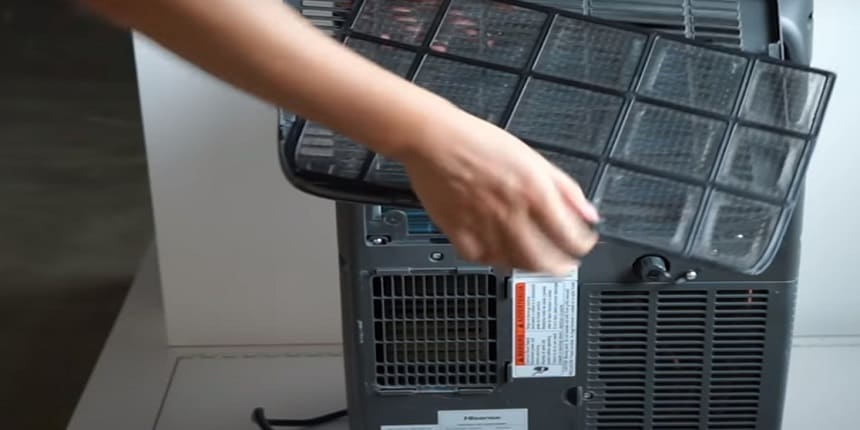
Air filters help trap dust, dirt, and other particles, preventing them from entering your cooling system. Over time, these filters can become clogged, obstructing the airflow and causing the evaporator coil to freeze up.
When the frozen coil melts, excess water can drip down into the drain pan, resulting in water noises. Regularly cleaning or replacing your air filters can help maintain proper airflow and prevent this issue.
3. Defective Condensate Pump
A defective condensate pump can be another reason behind water noises in your window AC.
The condensate pump is responsible for pumping the accumulated water out of the drain pan.
If the pump malfunctions or fails to operate correctly, water may not be efficiently removed, leading to water noises. Ensuring the condensate pump is in good working condition and considering replacing it if necessary can help resolve this issue.
4. Lack Of Installation Or Level Positioning
Improper installation or an unlevel positioning of your window AC unit can also cause water noises.
If the AC is not properly installed or placed on an uneven surface, the condensate may not flow correctly, causing water to build up and create noise.
Ensuring your AC unit is correctly installed and positioned on a level surface can help remedy this issue.
5. Damaged Or Malfunctioning Components
Finally, damaged or malfunctioning components within your window AC can contribute to water noises.
These components can include the evaporator coil, fan blades, or other internal parts that may be causing water to leak or drip, resulting in noise.
Regular maintenance and timely replacement of damaged components can help prevent water noises caused by malfunctioning parts.
Whether it is ensuring proper drainage, cleaning air filters, checking or replacing the condensate pump, adjusting installation and positioning, or addressing damaged components, troubleshooting and resolving these problems can help restore your window AC to optimal performance.
Air Conditioner Sounds Like Water Dripping – Impact Of Water Noises On Window Ac Performance
If you own a window AC unit, you may have experienced the frustration of water noises coming from it. While it may seem like a minor annoyance, these water noises can have significant impacts on the performance of your window AC.
Reduced Cooling Efficiency Of Window AC
One of the main impacts of water noises on window AC performance is reduced cooling efficiency.
When water accumulates inside the AC unit, it can interfere with the air conditioning process.
The presence of water droplets can obstruct the flow of air and reduce the unit’s ability to cool the room effectively.
As a result, you may notice that your window AC is not providing the desired level of cooling, leading to discomfort in the room and difficulties in maintaining a comfortable temperature.
Increased Energy Consumption
Water noises in your window AC can also have a direct impact on energy consumption.
When the cooling efficiency is reduced due to water accumulation, the AC unit needs to work harder to cool the room adequately.
This increased workload translates into higher electricity consumption. Inefficient cooling caused by water noises may result in your utility bills skyrocketing, putting a strain on your budget.
Potential Damage To The Ac Unit
Ignoring water noises in your window AC can lead to potential damage to the unit itself. The presence of excess water can cause corrosion and rusting of internal components over time.
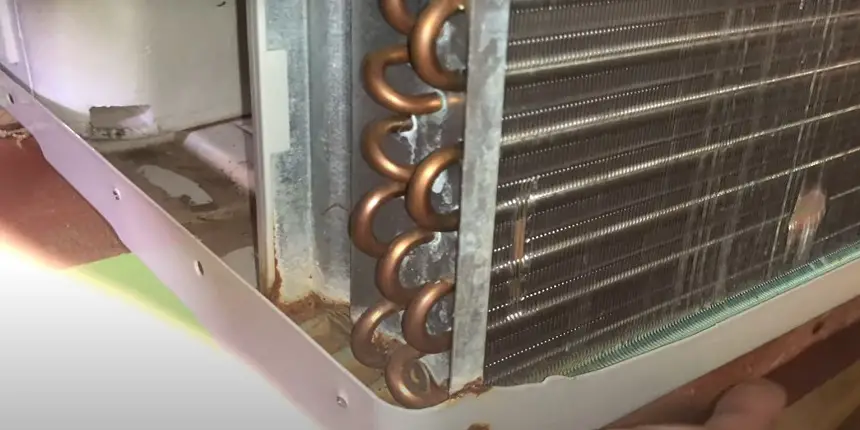
This corrosion can affect the performance and lifespan of your AC unit.
Additionally, if the water is not properly drained, it can leak into sensitive electrical parts of the AC, leading to short circuits and other electrical malfunctions.
Regular maintenance and prompt action to address water noises can help prolong the life of your window AC and prevent costly repairs.
Poor Air Quality And Discomfort In The Room
The accumulation of water in your window AC can also result in poor air quality and discomfort in the room.
Water droplets inside the unit can create a breeding ground for mold, mildew, and other harmful microorganisms. These microorganisms can be circulated into the room, leading to potential health issues, especially for individuals with respiratory conditions. The presence of excessive moisture can make the room feel damp and uncomfortable.
How To Stop Dripping Noise From Window Air Conditioner
If you’ve noticed water noises coming from your window air conditioner, it can be a cause for concern. We will explore some effective strategies to resolve water noises in a window AC.
By following these steps, you can maintain the performance of your AC system and enjoy a peaceful and comfortable indoor environment.
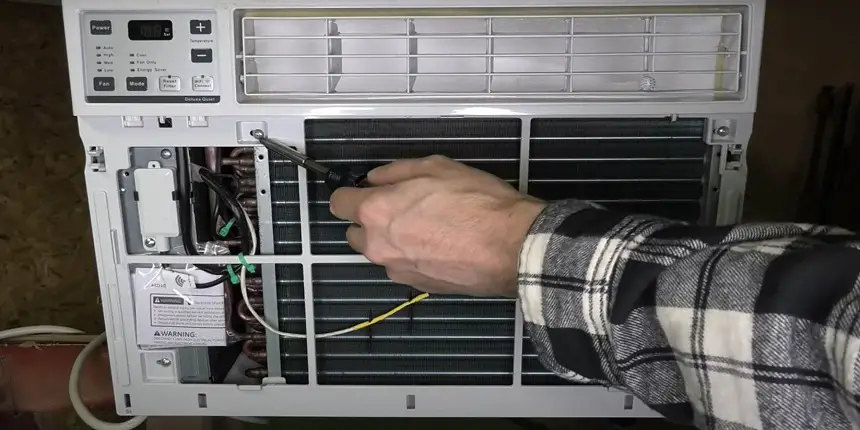
Regular maintenance and cleaning routines are essential to keep your window AC in optimal condition. Proper maintenance not only helps prevent water noises but also improves the overall efficiency of the unit.
Ensure that you establish a regular cleaning routine and follow the manufacturer’s recommendations or guidelines. Here are some key maintenance steps:
#1: Cleaning air filters
Regularly clean or replace the air filters to remove dust, debris, and mold buildup. Clogged filters can obstruct the normal airflow and contribute to excess moisture.
#2: Clearing clogged condensate drains
Over time, condensate drains can become clogged with dirt, mold, or algae. Use a stiff brush or a mixture of vinegar and water to clear any obstructions. This will allow the condensate to drain properly and prevent water accumulation.
#3: Ensuring proper drainage
A window AC unit needs to be positioned correctly for the water to drain properly. Ensure that the unit is slightly tilted downward toward the outside. This will facilitate the smooth flow of condensate out of the unit.
#4: Checking and adjusting the unit’s level positioning
An improperly leveled AC unit can cause water to pool and create noise. Use a spirit level and adjust the unit’s position accordingly to promote proper drainage.
#5: Repairing or replacing faulty components
If you notice any damaged or malfunctioning parts, such as a broken drain pan or faulty fan, take appropriate steps to repair or replace them. Faulty components can lead to water leaks and unusual noises.
#6: Seeking professional assistance if necessary
If the water noises persist or if you are unsure how to address the issue, it is advisable to seek professional assistance. An experienced technician can diagnose the problem accurately and provide the necessary repairs or maintenance.
Preventive Measures To Stop Dripping Noise From Air Conditioners
Is your window AC making water noises? Discover preventive measures to avoid this issue in the future and maintain a quiet cooling system. Keep your AC clean, check for proper drainage, and ensure the unit is installed correctly to prevent water noises and enjoy a peaceful environment.
Regularly Cleaning And Maintaining The Ac Unit
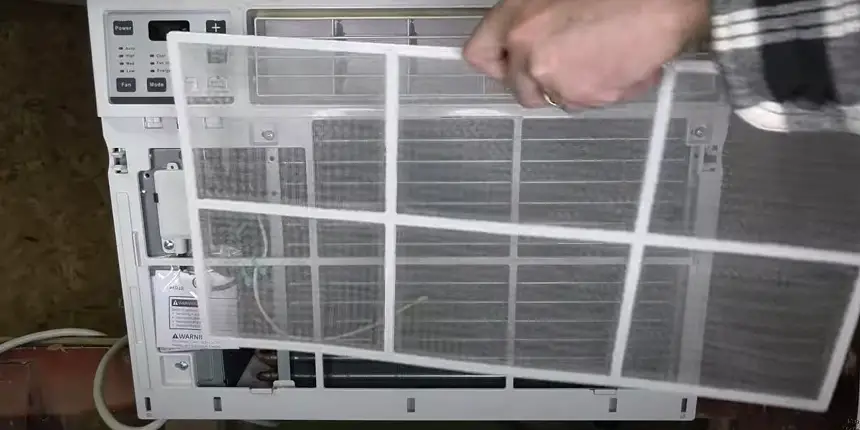
Regular cleaning and maintenance of your window AC unit is essential to prevent water noises in the future. Over time, dust, dirt, and debris can accumulate in the unit, causing clogs and obstructions in the drainage system. To avoid this, make sure to:
- Clean or replace the air filter every month, or as recommended by the manufacturer. A clogged or dirty filter can restrict airflow and cause excessive condensation.
- Wipe down the coils and fins with a soft cloth or brush to remove any dirt or grime. This helps in maintaining optimal airflow and heat exchange.
- Inspect the drainage holes and channels to ensure they are clear of any obstructions. Use a small brush or pipe cleaner to remove any buildup.
Ensuring Proper Installation And Positioning
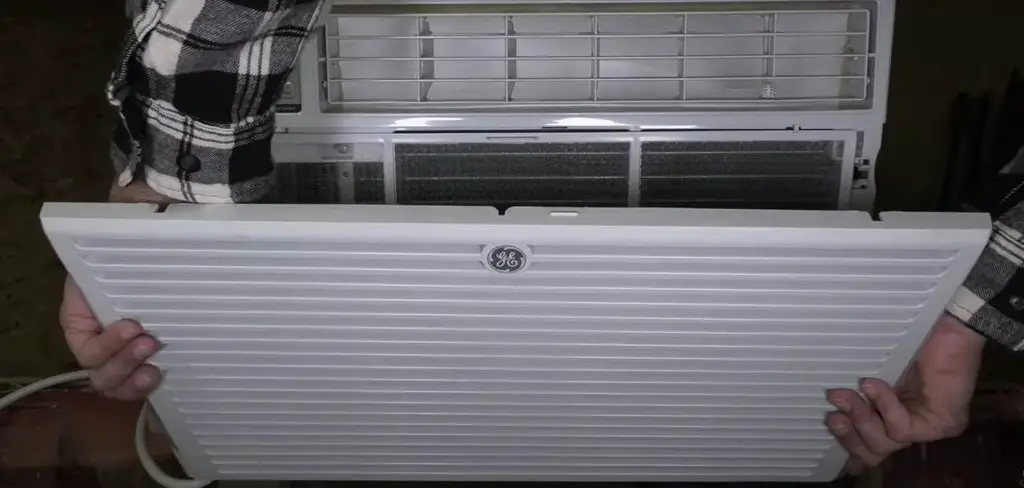
The way your window AC unit is installed and positioned can greatly impact its performance and the occurrence of water noises. Consider the following:
- Ensure that the unit is installed level and securely in the window frame. Any tilting or instability can lead to water accumulation and noise.
- Properly seal the gaps between the unit and the window frame to prevent outside air from entering and causing condensation inside the unit.
- Avoid placing objects or furniture in front of the AC unit that may obstruct airflow or block the drainage system.
Monitoring Condensation And Drainage
Monitoring the condensation and drainage of your window AC unit helps identify any potential issues early on. Follow these steps:
- Regularly check the condensation drip pan for any signs of overflowing or excessive water accumulation. If needed, empty the drip pan and clean it to ensure proper drainage.
- Make sure it is securely attached and free from any kinks or blockages. Any water leakage or abnormal dripping should be investigated and addressed immediately.
- Observe the unit during operation for any unusual sounds or excessive water dripping. Pay attention to the noise coming from the water hitting the condenser coil or other components, as this may indicate a problem with the drainage system.
Promptly Addressing Any Signs Of Malfunction
If you notice any signs of malfunction or water noises in your window AC unit, it is crucial to address the issue promptly. Ignoring or delaying repairs can lead to further damage and potentially costly repairs. Take the following actions:
- Call a professional HVAC technician to inspect and repair the unit, especially if you are unsure about the cause of the water noises.
- Do not attempt to disassemble or repair the AC unit yourself, as it may void any existing warranty and can be dangerous.
- Keep a record of any repairs or maintenance performed on the unit for future reference.
Why Is My Window Ac Making Water Noises?
If your window AC is making water noises, it could be due to a blockage in the condensate drain line. When the line is clogged, water builds up and creates gurgling or dripping sounds. To fix this issue, try cleaning the drain line with a mixture of bleach and water or contact an HVAC professional for assistance.
How Do I Fix Water Noises From My Window Ac?
To fix water noises from your window AC, start by checking the condensate drain line for any blockages and clean it if necessary. Ensure that the unit is properly leveled to allow proper drainage. If the issue persists, you may need to contact an HVAC technician to inspect and repair any internal components causing the problem.
Is It Normal For My Window Ac To Make Water Noises?
It is not normal for a window AC to make water noises. While some condensation is expected, excess water noises could indicate a problem. Common causes include a clogged drain line, improper unit leveling, or internal component issues. It’s best to address these issues promptly to avoid further damage to your unit.
How Can I Prevent Water Noises In My Window Ac?
To prevent water noises in your window AC, regular maintenance is crucial. Keep the condensate drain line clean by flushing it with bleach and water or using a specially designed cleaner. Ensure the unit is properly leveled to promote proper drainage.
Additionally, scheduling annual HVAC maintenance can catch and address any potential issues before they become problems.
Finishing
To summarize, if your window AC is making water noises, it is most likely due to condensation buildup or a clogged drainage system. Regularly cleaning the unit, removing any blockages, and ensuring proper installation and maintenance can help resolve this issue.
Addressing these concerns will not only prevent water-related inconveniences but also improve the overall performance and longevity of your AC. Remember, a little maintenance goes a long way in keeping your cooling system efficient and noise-free.
